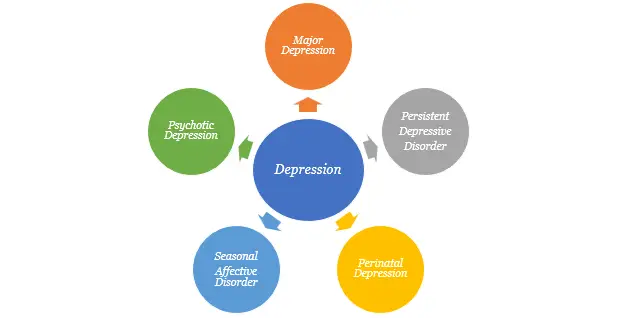
Prioritizing mental health is important for everyone. Depression might look like not a serious health issue but it can affect the daily life. Depression or Depressive disorder or clinical depression can cause many symptoms that can affect your feelings, thinking ability and even difficult to do basic daily activities such as sleeping, eating and other house chores. According to WHO, approximately 3.8% of the population experience depression which includes 5% adults and 280 million people have suffered depression at some point of their life. Depression is more common in women than men.
What is Depression?
Depression is a mood disorder that causes persistent feeling of sadness and loss of interest. It can lead to various emotional and physical health issues. Depression can occur in case of a change in surroundings which give rise to the feelings which are intense, enduring and are not appropriate according to the people’s circumstances. For some people, depression can last for several weeks, months or years but for many people, it gets better for some time, then relapses after sometime.
What are the symptoms of Depression?
Signs and symptoms can be different for every person who is suffering from depression. Depression’s symptoms are different from normal mood fluctuations and the duration of these episodes also varies with the person. Following are the common symptoms of depression;
- Continually sad, anxious mood or empty feeling
- Feeling of desperateness or distrust
- Irritation, frustration‚ or agitation
- Feeling guilty, unimportant, or vulnerable
- Hard to find interest or pleasure in your hobbies or daily activities
- Feeling fatigue or being slowed down due to decreased energy
- Difficult to concentrate, remember or even hard to make decisions
- Struggling in sleeping, early morning awakening, or oversleeping
- Less or loss of appetite or unexpected changes in weight
- Aches or pains, headaches, spasms, or problem in digestive tract
- Suicidal thoughts or Suicide attempts
What are the different types of Depression?
There are different types of depression according to the different signs and symptoms. The common types of depression are following;

- Major Depression: Major Depression is the most common form of depression and it include symptoms of depression which lasts for at least 2 weeks and it affects the one’s ability to do basic chores like work, sleep, study, and eat.
- Persistent Depressive Disorder: Persistent depressive disorder or dysthymia often includes less serious symptoms of depression but they last for longer time usually for at least 2 years.
- Perinatal Depression: Perinatal depression is also known as postpartum depression is a type of depression which occurs during pregnancy or after delivery and it is common in females and is considered as one of the major depressions.
- Seasonal Affective Disorder: It comes and goes with the changing seasons. It typically starts in the late fall and early winter and goes away during the spring and summer season.
- Depression with symptoms of Psychosis: It is one of the severe types of depression in which person start experiences psychosis symptoms like delusions or disturbing images, false or fixed beliefs or hallucinations which includes hearing or seeing things that are not visible or hear by others.
What are the causes of Depression?
There is no exact cause of depression fully understandable by the healthcare experts. There may be many causes and sometimes many factors combine to trigger the symptoms of depression. The possible causes of depression may include:
- Biological factors: Changes in neurotransmitter levels of brain (brain signalling), genetics, and brain structure.
- Environmental factors: Hyper stress, trauma, any loss, or changes in life.
- Psychological factors: Personality behaviours, low self-esteem, and continuous negative thought in mind.
What are treatment options for Depression?
Usually, the doctor will ask your medical history first, assessment of symptoms and evaluation of other possible symptoms of depression in person.
- Psychotherapy: Psychotherapy is also known as talk therapy or counselling. These are performed by trained mental health professionals. There are 2 main therapies to treat depression such as Cognitive Behavioural Therapy and Interpersonal Therapy.
- Brain Stimulation Therapy: It involves the activation or Inhibition of the brain directly with electric or magnetic waves. These are new treatment options and are for those people who are not cured with therapies or medications.
- Medications: There are several medications which are used to treat the symptoms of depression such as antidepressants, antipsychotics and anticonvulsants. Always consult your physicians or doctor before taking any medicine. There are FDA approved medicines which are available and are known to be proven effective in treatment of depression.

 Universal - go to homepage
Universal - go to homepage

